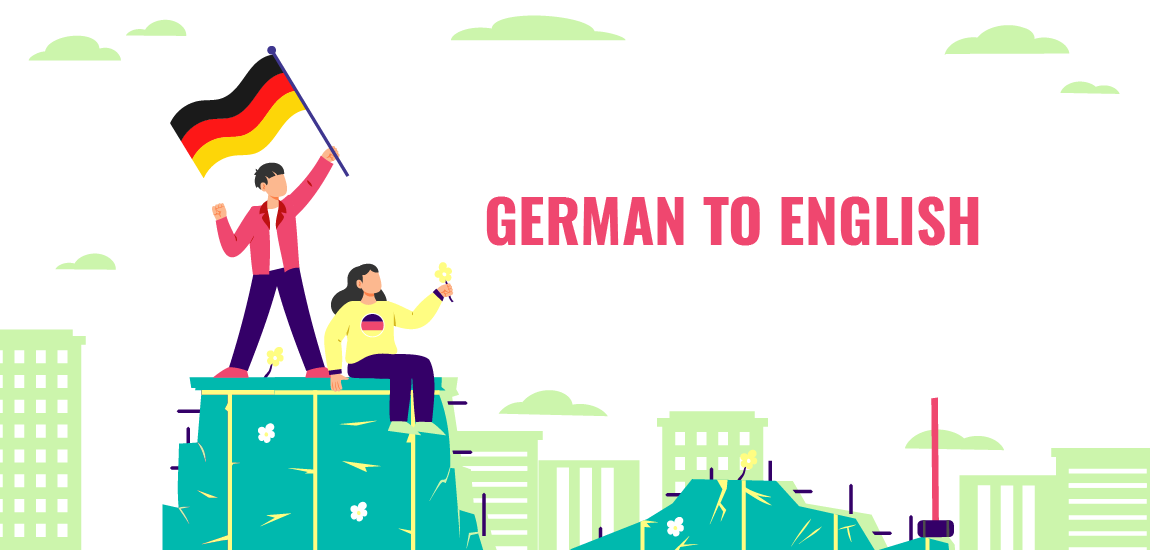
Guide to Efficient German to English Translation Services
When it comes to expanding your business or connecting with a global audience, accurate translation services are crucial. German to English translation services play a vital role in bridging the communication gap between these two languages. Finding the right translation service can be a daunting task, but with the right knowledge and guidance, you can ensure a smooth and efficient translation process. In this guide, we will explore the basics of German to English translation, the importance of choosing the right service, and how to prepare your documents for translation.
Understanding the Basics of German to English Translation
Navigating the complexities of German to English translation requires a nuanced approach, recognizing the distinct grammar, syntax, and vocabulary inherent to each language. At the heart of successful translation services are certified German translators, who possess not only fluency in both German and English but also a comprehensive understanding of the cultural and contextual nuances that influence language. These skilled professionals are pivotal in ensuring that the essence and tone of the original material are preserved in the translated version. Their expertise is especially critical when dealing with various types of content, ranging from technical documents to creative marketing collateral. Engaging with translators who have a profound grasp of both languages facilitates a translation process that honors the integrity of the source material while making it accessible and relevant to an English-speaking audience. The significance of working with experienced translators cannot be overstressed, as they are the cornerstone of achieving clear, accurate, and culturally resonant communication across linguistic barriers.

The Importance of Choosing the Right Translation Service
Selecting an appropriate translation service is a pivotal step towards achieving impeccable German to English translations. It’s imperative to opt for agencies that not only specialize in these language pairs but also boast a roster of german certified translators. These professionals ensure precision, allowing your content to transcend linguistic barriers effectively. A standout service should offer prompt delivery and competitive rates without compromising on quality. Investigating the experiences of prior clients through reviews can offer invaluable insight into the service’s reliability and the satisfaction levels of its clientele. This due diligence is key in forging a partnership that aligns with your expectations and translation objectives. Additionally, engaging with a service that demonstrates a clear understanding of your specific needs can significantly enhance the outcome. This includes their ability to handle various document types with the requisite expertise and cultural sensitivity. In essence, the right translation service becomes an extension of your team, instrumental in facilitating seamless communication and fostering connections with an English-speaking audience.
Automated vs. Human Translation Services
In the rapidly evolving landscape of translation, the debate between automated and human translation services presents a critical choice for those in need of German to English translations. Tools like Google Translate offer a convenient and instant solution for basic translation needs. They are engineered to process words and phrases across numerous languages, leveraging algorithms and vast databases. However, the complexity and subtlety of language often elude these automated systems. They struggle to grasp context, cultural nuances, and the intricacies of syntax that human translators navigate with ease.
Human translators, on the other hand, bring a level of understanding and adaptability that machines have yet to match. They excel in interpreting the subtleties of language, ensuring that translations are not only accurate but also resonate with the intended audience in a culturally appropriate manner. This human touch is indispensable for texts requiring a deeper understanding, such as literary works, specialized business documents, and materials with idiomatic language.
Moreover, human translators can work with clients to capture the tone and style that automated systems might overlook. Their expertise allows for the flexibility to adapt translations to fit the specific needs and contexts of their clients, an aspect critical for effective communication and understanding across languages. While the convenience of automated tools is undeniable for straightforward tasks, the nuanced and complex nature of most translation projects favors the precision and insight offered by human expertise.
Specialized Translation Services for Business and Legal Documents
Navigating the intricate landscape of business expansion or legal processes in English-speaking markets necessitates a precision in language that only specialized translation services can provide. This requirement goes beyond mere fluency, demanding a deep understanding of industry-specific terminology and cultural nuances that could significantly impact the intended message of documents such as marketing materials, product descriptions, legal contracts, and financial reports. Employing certified translators who bring not only language proficiency but also expertise in particular business or legal fields ensures that every document reflects the professionalism and clarity needed to engage effectively with your target audience. These specialized services are tailored to address the unique challenges posed by different types of documents, facilitating communication that is both accurate and culturally relevant. By leveraging the skills of translators experienced in your sector, you can rest assured that your key business and legal documents are conveyed in a manner that resonates with English-speaking stakeholders, preserving the integrity and intent of the original text. This specialized approach is essential for companies aiming to build trust, comply with international regulations, and achieve success in global markets.

How to Prepare Your Documents for Translation
To optimize the translation process, organizing your documents beforehand is essential. Ensure all materials are in their final version, meticulously reviewed for clarity and accuracy. Misunderstandings or ambiguities in the original document can lead to errors in the translated version, which might not be the fault of the translator. Providing comprehensive background materials such as glossaries, previous translations, and company-specific terminology can be incredibly helpful. These resources aid translators in grasping the context and maintaining consistency across documents, especially when dealing with specialized or technical content. Additionally, articulating your objectives, such as the target audience, desired tone, and purpose of the document, allows translators to tailor their approach accordingly. If your document contains images with embedded text, consider providing editable files or text extracts to ensure all content is accurately translated. For projects with tight deadlines, organizing and labeling your documents clearly can expedite the translation process. Remember, effective communication with your translation service provider about your needs and expectations is crucial for a successful translation outcome. By taking these preparatory steps, you contribute significantly to a seamless translation process, ensuring the final product aligns with your vision and objectives.
Navigating Cultural Differences in Translation
In the realm of translation from German to English, recognizing and aptly addressing cultural differences is paramount. These differences often manifest in idiomatic expressions, humor, and cultural references that are deeply ingrained in the source material. A direct translation may not convey the intended meaning or may be completely lost on the target audience without a careful adaptation that respects these cultural nuances. Expert translators excel in this adaptation process, employing their deep understanding of both cultures to bridge the gap effectively.
One common challenge is translating humor or idioms, which may not have a direct equivalent in English. In these instances, translators must find creative solutions that preserve the original’s spirit without alienating or confusing the audience. Additionally, societal norms and values differ significantly between German-speaking countries and English-speaking cultures, influencing how certain messages are perceived. A translator’s ability to interpret these subtleties and adjust the translation accordingly is crucial for maintaining the text’s relevance and impact.
For businesses and content creators aiming to engage an English-speaking audience, collaborating with translators who are culturally savvy is essential. These professionals not only translate language but also transcreate content, ensuring it resonates with the target demographic while staying true to the source material’s essence. By prioritizing cultural competency alongside linguistic accuracy, translations can achieve the delicate balance of being both universally understandable and locally appealing.
The Future of German to English Translation Services
The landscape of translation, particularly from German to English, is on the cusp of significant transformation due to technological advancements. Innovations such as neural machine translation (NMT) and artificial intelligence (AI) are enhancing the efficiency and accuracy of translation tools. These technological leaps forward promise to streamline the translation process, making it quicker and more accessible to a wider audience. However, despite the strides in automation, the human element remains irreplaceable. The nuanced understanding of linguistic subtleties, cultural contexts, and specialized knowledge areas that human translators offer cannot be fully replicated by machines. As a result, the future of translation services will likely embody a hybrid model, where advanced technology supports human expertise. This synergy will facilitate higher quality translations, optimizing both speed and accuracy while preserving the cultural and contextual integrity of the original text. The evolving role of technology in translation underscores the need for continuous adaptation and learning among translation professionals. By embracing these changes, German to English translation services will be better equipped to meet the diverse and expanding needs of global communication, setting a new standard for excellence in the field.
Professional Translators: Bridging Language Barriers
Document translation requires the expertise of professional translators to accurately convey the meaning and nuance from the original language to the target language. Professional translation services employ skilled translators who are proficient in both the source and target languages, ensuring that the translated document maintains the integrity and context of the original. English translators, for example, adeptly handle translations from a wide array of languages into English, ensuring clarity and precision. These professionals play a crucial role in bridging language barriers and facilitating effective communication across diverse linguistic landscapes.
German speakers, with their proficiency in the German language, are invaluable as document translators for various official needs. Whether dealing with PDF files or hard copies, they meticulously translate entire documents, ensuring accuracy and completeness. This is especially important for sensitive documents such as marriage certificates, where precision is crucial for legal and personal reasons. By providing expert translation services, German speakers help bridge language barriers, making vital documents accessible and understandable to non-German speakers.
Professional Translation vs. Apps: A Necessity
While a translation app can provide automatic translation for quick and convenient communication, it often falls short in delivering the high-quality translations required for more complex tasks. For technical translation, where precision and expertise are essential, relying on professional translation services is crucial. These services ensure that industry-specific terminology and nuanced language are accurately conveyed, something that automatic translation tools may not adequately handle. Thus, while translation apps are useful for everyday use, professional translation services remain indispensable for high-stakes and specialized translation needs.
Translation agencies play a pivotal role in bridging communication gaps between the English language and various foreign languages. They ensure that documents written in the source language are accurately translated into the target official language, maintaining the integrity and meaning of the original text. Utilizing dictionary entries and the expertise of native speakers, these agencies guarantee precise and culturally sensitive translations. This meticulous approach is essential for official documents, legal papers, and business communications, where the nuances of language must be preserved to ensure clarity and effectiveness.
Professional German Translation Services: Accuracy and Affordability
For precise German document translations, utilizing professional German translation services offered by reputable translation companies is essential. Unlike online dictionaries, which provide basic translations, a German translator ensures accuracy and cultural relevance, particularly in legal translation contexts. In navigating the German market, accurate communication is crucial, and expert translators facilitate clear and legally compliant documents that meet regulatory standards and local business requirements.
German translation projects require a qualified translator who is adept in the language and knowledgeable about specific subject matters. These projects benefit from the expertise of a project manager who oversees the workflow, ensuring that translations are accurate and delivered on time. Clients often seek out services that offer competitive prices without sacrificing quality. Finding a translation service that provides affordable prices can make a significant difference, particularly for large-scale projects, allowing clients to receive high-quality translations within their budget.
FREQUENTLY ASKED QUESTIONS
Why is German translation important in global communication?
German translation is crucial for global communication due to Germany’s economic strength, its role as a hub for technology and innovation, and the significant cultural contributions of German-speaking countries. Translating into German opens up markets, facilitates international cooperation, and enables access to German-language resources for non-German speakers.
What challenges do translators face when translating into German?
Translators face challenges such as the complexity of the German language, including its compound words and grammatical structures, as well as the need to accurately convey cultural nuances and idiomatic expressions. Additionally, regional variations in vocabulary and terminology can pose difficulties in ensuring consistency and clarity in the translation.
How do professional translators ensure high-quality German translations?
Professional translators ensure high-quality German translations by having a deep understanding of both the source and target languages, staying updated on language trends and cultural developments, and using specialized tools and resources such as dictionaries, glossaries, and translation memory software. They also undergo rigorous training and may specialize in specific subject areas or industries to provide accurate and contextually appropriate translations.
What industries commonly require German translation services?
Industries such as automotive, engineering, technology, pharmaceuticals, finance, and tourism commonly require German translation services due to Germany’s leading role in these sectors. Additionally, sectors like literature, academia, and entertainment benefit from German translation for the dissemination of scholarly works, literary texts, and multimedia content to German-speaking audiences.
How does German translation contribute to cross-cultural understanding?
German translation contributes to cross-cultural understanding by facilitating the exchange of ideas, information, and perspectives between German-speaking communities and speakers of other languages. It enables access to German culture, literature, and academic research for non-German speakers, fostering mutual understanding and appreciation across linguistic and cultural boundaries.


Sorry, the comment form is closed at this time.